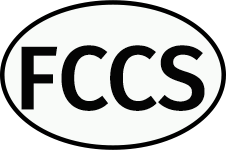If someone calls you out of the blue and claims they are with Microsoft, JUST HANG UP.
Since I wrote my article titled “I want my refund” (Sept 2018) the frequency of these scam phone calls has increased, and the cost is mounting. The worst case I have encountered was a person scammed out of $8,000.
Many of my clients cite receiving these calls many times a day for weeks on end. Most often it is a robo-call, but sometimes there is a real person on the phone. The phone numbers are never the same since the scammers use sophisticated rerouting to falsify their caller-ID. So you cannot block a number and expect that to help.
Here is what Microsoft says about protecting yourself against tech support scams:
- Microsoft does not send unsolicited email messages or make unsolicited phone calls to request personal or financial information, or to provide technical support to fix your computer.
- Any communication with Microsoft has to be initiated by you.
- If a notification appears with a phone number, don’t call the number. Error and warning messages from Microsoft never include a phone number.
- Microsoft technical support will never ask that you pay for support in the form of Bitcoin or gift cards.
Point 2 above needs to be emphasized: ALL communication with Microsoft MUST be initiated by YOU. Microsoft will never call you unless you have expressly requested it.
Point 3 above means that if you get a popup message on your computer which includes a phone number to call, it is NOT Microsoft and is a scam.
Most (if not all) of these scam calls lead to the caller requesting remote access to your computer. Never fall prey to this tactic. If you get an unsolicited call that leads to the caller asking for access to your computer, please simply hang up.
If you have fallen victim to any scam where remote access was granted, it is important that you quickly change passwords. Especially those which are for financial, shopping, and email websites. It is trivial for a scammer to acquire all of your saved passwords while remotely accessing your computer.
The simplest way to avoid trouble is to never provide an unsolicited caller with remote access to your computer.

